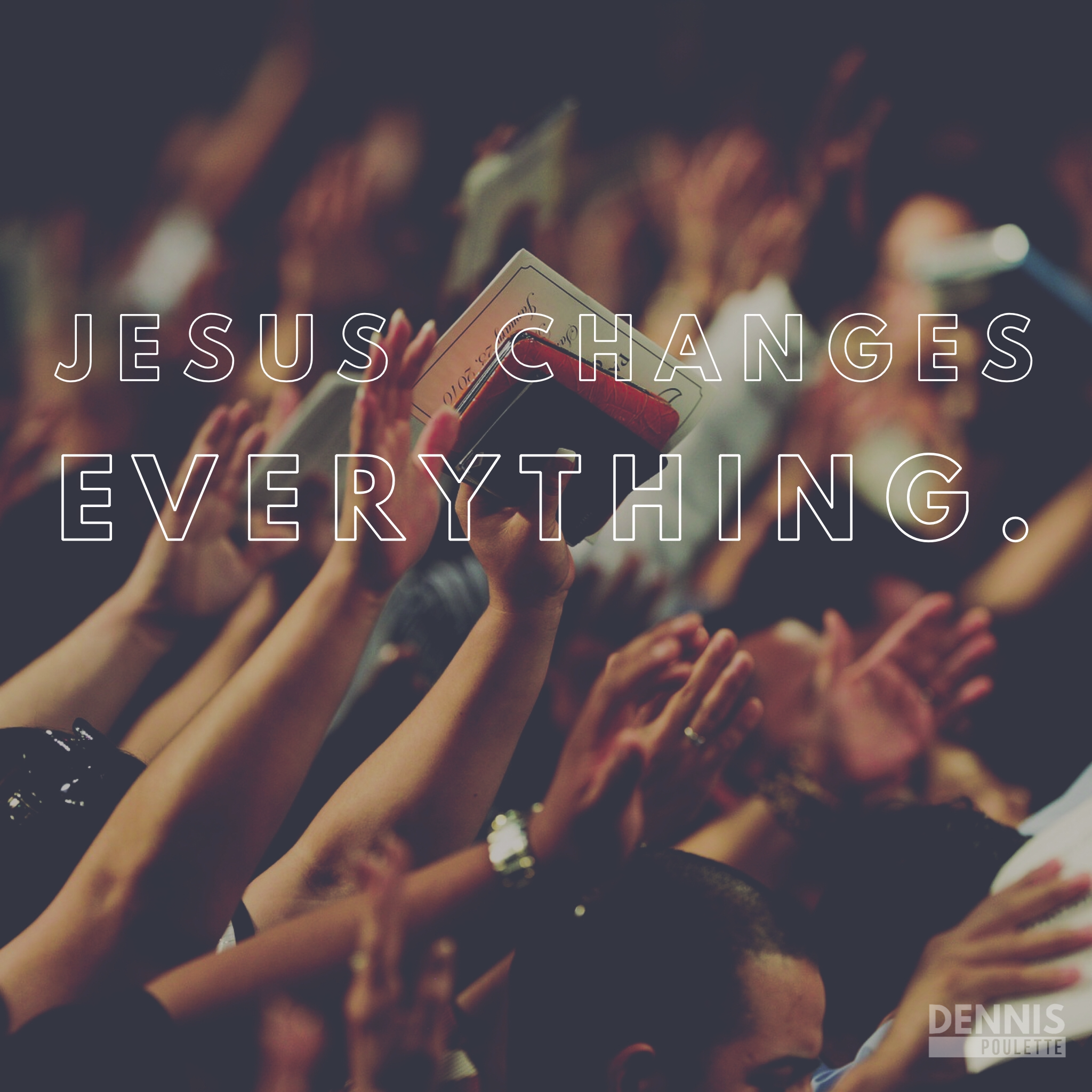Here’s a case study I had when I was studying a class on Principles of the Christian Life at Columbia Biblical Seminary in South Carolina. I am publishing it here because of some recent discussion I have had with some people about the separation of church and state and the role of religion in politics. I think it’s worth thinking about, and I welcome your comments.
I reserve the right to delete comments (they’re moderated). Please don’t 1) use profanity, 2) demean other people, 3) discourage dialog and discussion
Sam was a man of conviction. Before long virtually everyone in the city of Tsuchiura knew that. When the missionary took up his position at the end of every festival parade, bearing his protest sign, everyone noticed because he was twice the size of anyone else, and white besides. His signs didn’t hurt his visibility, either. “These gods you worship are devils” somehow caught the eye.
But Sam’s more important, if less visible, confrontation with his adopted society came when the school year opened or some major event took place. Such occasions, from time immemorial, called for a formal recognition of the gods in brief Shinto ceremony. But the missionary did not want his children exposed to this pagan idolatry. In truth, he didn’t want anyone exposed to it. So he would protest to the public school principal that he was violating the constitution which disestablished Shinto as the national religion. I admired Sam’s courage even when, as an uninvited guest in Japan, I did not feel called on to emulate this approach.
The next time we were in the US, I had a startling experience. The Supreme Court had just outlawed the official prayers in the public schools of America and many Christians were in an uproar. That confrontation of church and state had a familiar ring to a Japanese missionary. Not startling though. The startling thing was a Christian magazine out of Washington, DC which published a highly emotional and uncompromising article condemning the Supreme Court out of hand and affirming our rights — yea, our obligation — to have Christian prayer in public schools. The author? Sam!
The following was on the page with the case study:
Questions to consider: Was Sam right on both occasions? Wrong on both occasions? Right on one, wrong on the other? Why?
Purpose of the discussion: To gain sensitivity to the complexity of dealing with church/state issues and to honestly face the danger of potential hypocrisy when we do not thoroughly and objectively understand the full range of interrelated issues.



I don’t like questions like these. Was Sam right or wrong on either occasion? I would hope that Sam was following his highest truth, and exercising his free will and best judgment. I’m not willing to pass judgment on Sam.
I personally feel it’s rude to tell other people what they should believe or how they should express their faith. And it’s hypocritical to condemn prayer in school when it’s not done your way, but insist prayer occur in school if it is done your way.
I think it’s incredibly arrogant to assume the way one group or culture expresses their faith is THE correct way.
I’d write more, but it’s 1:30 a.m. and I’m exhausted and I need to be up again in 6 hours. But I value this discussion. I’d like to see it continue.
Hey Cheryl…thanks for the comment. You have to remember these questions were posed to Christian seminary students.
The point of the question, I think, was to help Christians realize that often times we have double standards, depending on our context.
yeah, maybe its better to see how the christians respond to this post. For me, why would I stop someone else from practicing their religion as long as it’s not encroaching on my choices?
This conversation started because I asked you about why evangelical christians seem unwilling to respect the separation between church and state in the US.
for example, prayer in schools.
what christians mean is: let’s get kids to read the bible in public schools.
but would evangelicals be cool if a school started teaching the Koran in their public school?
absolutely not.
so i find their request for school prayer to be dishonest. this is why the US says: no prayer of any kind in our schools. Pray anywhere but here so we can all choose what we want.
Intelligent Design is another evangelical dishonesty. They can’t just admit that it’s a covert name for Creationism (the Bible) which they want taught in public schools. Why do evangelical leadership feel they need to “sneak” in their beliefs into our policies and laws?
http://tinyurl.com/dl3k4
i’m surprised more evanglicals don’t question their leaders more. where’s the critical thinking? why the group think?
there are problems in the US.
cool, let’s fix them.
But why keep making bigger and bigger walls between us?
Thanks for the response, Jay. I agree with you. Many Christians are okay with prayer in schools as long as it is their kind of prayer.
If we began to allow Muslim students to pray for their ritual, then there would be uproar.
I doubt that many would be okay, either, with the study of the Quran, even as a historical document.
I’m also pretty sure that there doesn’t need to be approval for prayer in schools. Students can pray if they want. They just can’t force others to join them, I suppose.
well said. A group of christian students can have a bible class during lunch on their own. A buddhist can meditate during breaks on her own. A boy could pray to mecca as he needs.
What we dont have is the Teacher, who is the public authority figure, teach the bible to everyone during class. Just like the Teacher doesnt practice other religious rituals to the class. This is Separation of Church and State.
To take this example further, this is also why it’s concerning that evangelicals want to have a President who expresses his beliefs publicly, and continue to change policy based on these specific religious beliefs.
What about those of us who aren’t evangelical? It’s ironic that evangelicals are rightly concerned that Mitt Romney may bring his Mormon faith into his candidacy, and then applaud when Gov Huckabee openly says that his interpretation of the Bible will influence his presidency.
This kind of religious practice only puts up walls between people. It’s a small, narrow, and weak place to be.
Interesting and, unfortunately, not unbelievable. These are my initial reactions…though I am sure this will mull around in my mind for a bit.
The small group I am a part of has been going through Acts and last night we were talking about Acts 9. Perhaps that is why Saul immediately came to my mind when I read the beginning of this story. Saul was a man that was adamantly against those that were of “the Way” and was greatly convicted in this belief. I wondered, last night, how many times Saul had been presented with truth before being confronted by Jesus? While Sam might be presenting ‘truth’, I wonder if he has ever prayed that those of differing viewpoints would be confronted by Jesus? I wonder how many times his life has shown the love and grace of Christ in the lives of these individuals? If this isn’t his heart cry, then I really wonder why he is even a missionary. Christ alone transforms lives, not big signs and arguments.
This makes me wonder what are the “convictions” of Sam? One might be quick to assume that because Sam is a missionary that his convictions are that of Christ. We must remember, however, that even Hitler was a man of convictions. Being a missionary does not assume that one’s convictions are based on the life, ministry, and Word of Christ.
His “visibility” is apparent as the lone big, white guy in the crowd. I’d be inclined to think that this alone could be an opportunity to “use the culture to win the culture.”
Sam sort of reminds me of someone who would portray Jesus as this video ( http://www.youtube.com/watch?v=ceIOmIBN4lw) does.
Perhaps I am partly influenced by growing up in the United States and, specifically, a fairly liberal part of the country…but I’m ok with my children being exposed to multiple cultures and beliefs. In fact, I think this is a major reason why I would like my children to be in public schools, why we send them on mission trips, etc. The reality is that the more they see (mind you I didn’t say ‘experience’) differing cultures and beliefs, the more opportunity my husband and I will have to use these cultures and beliefs to show my children the Truth of Jesus Christ and the false gods that others often worship. My God is far greater than any other god that might be served in our public schools.
I’ve got a bunch of other thoughts and reactions to this, but they’d make this far too long.
i agree with kathy about being okay with exposing our kids to diverse and different worldviews. of course, there is a fine balance between when, how old, how mature they are and the type of information they get.
in the case of sam, i think he was being a bit too outspoken. complain long enough at your kids’ public school and that makes it bad for everyone.
interesting case study!